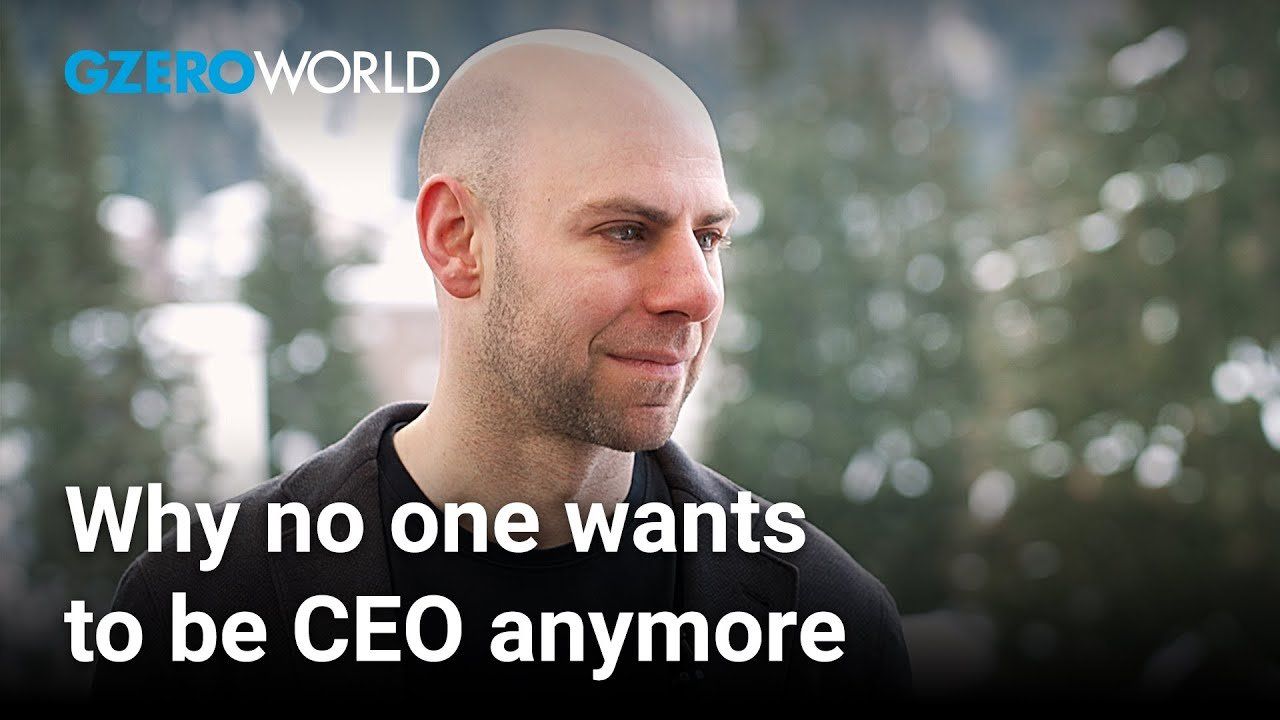
CEOs are influential and highly paid, but long hours, high stress, and uncertainty about the future are leading to “CEO burnout” and disinterest in leadership roles among young workers.
CEO is one of the most influential and highly-compensated jobs in the world, but according to organizational psychologist Adam Grant, the overwhelming feeling he senses from business leaders right now is one of “powerlessness.” With so many uncertainties and risks right now—climate change, crumbling democracy, powerful new advances in AI—CEOs are putting their heads down to focus on short-term gains instead of preparing for the long-term futures of their organizations.
On GZERO World, Ian Bremmer asks Grant, who studies leadership and culture in the business world, what he makes of this shift, and whether CEO incentives need to change. Grant sees a growing disinterest among young workers in taking on leadership roles, pointing to long hours, short tenures, and a growing sense that it’s unclear how much good they can do, if any, from the executive c-suite. All this contributes to what Grant calls “CEO burnout,” and he said he hopes to see more companies with co-CEOs, which is better for business and workers.
“I think the job [of CEO] is just so big and complex that it’s hard for one person to have all the skills you need,” Grant explains.
Watch full episode: How AI is changing the world of work
Catch GZERO World with Ian Bremmer on US public television every week. Check local listings.
- Hard Numbers: Canada's govvies boom, Americans start to care about the world, CEOs rake in record riches, Fentanyl “superlabs” hum up north, meltdown in Canada-UK cheese talks ›
- US CEOs too influential on China policy, says Rahm Emanuel ›
- What's on the mind of 21st century CEO leaders? ›
- Corporations losing the culture wars — Angela Hofmann ›